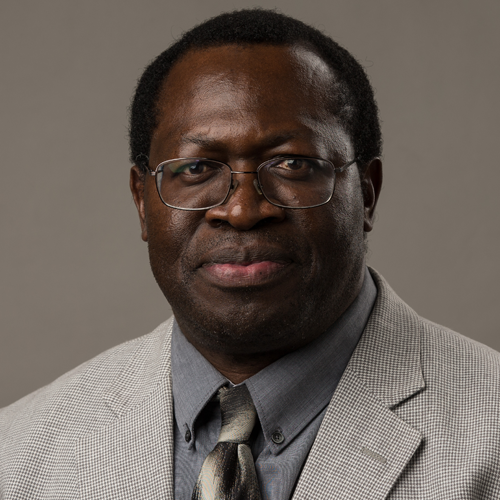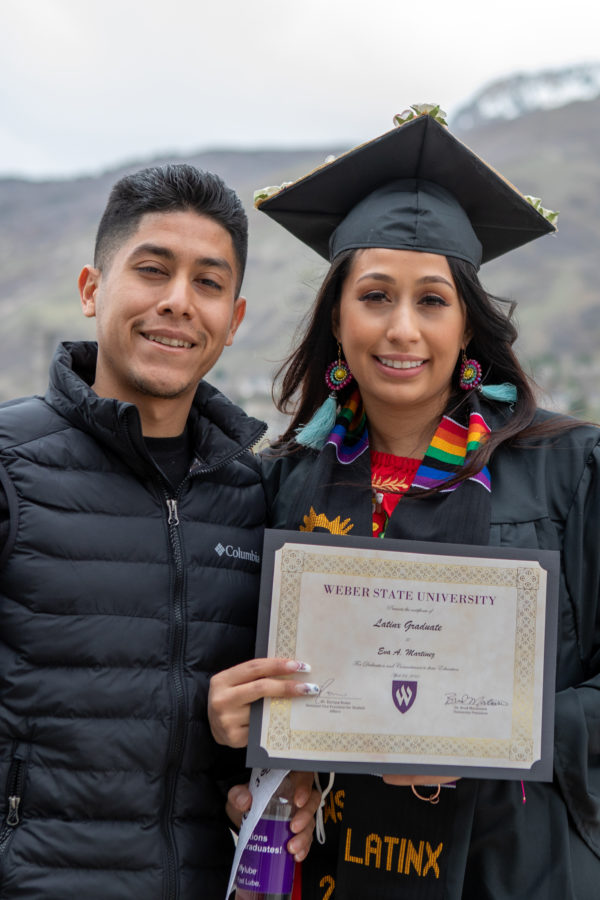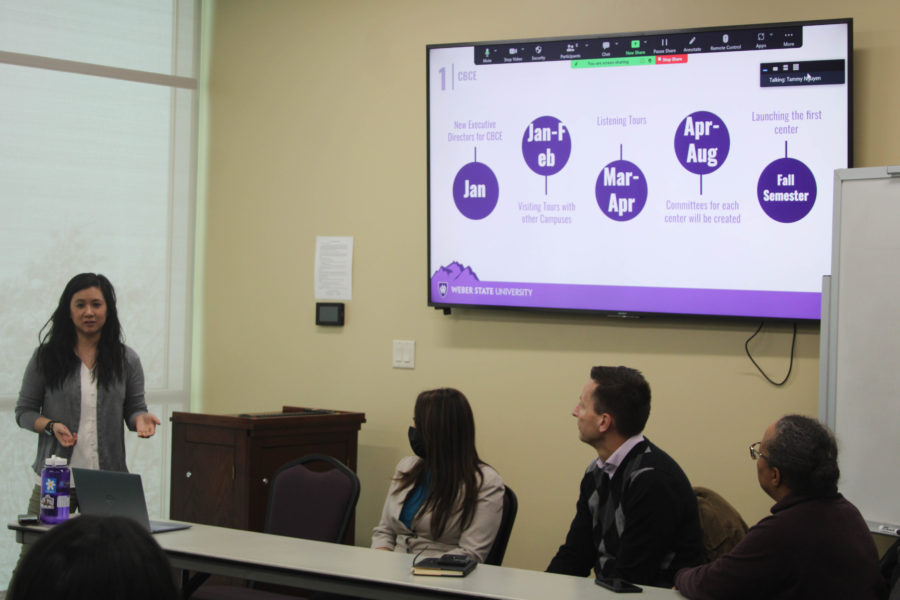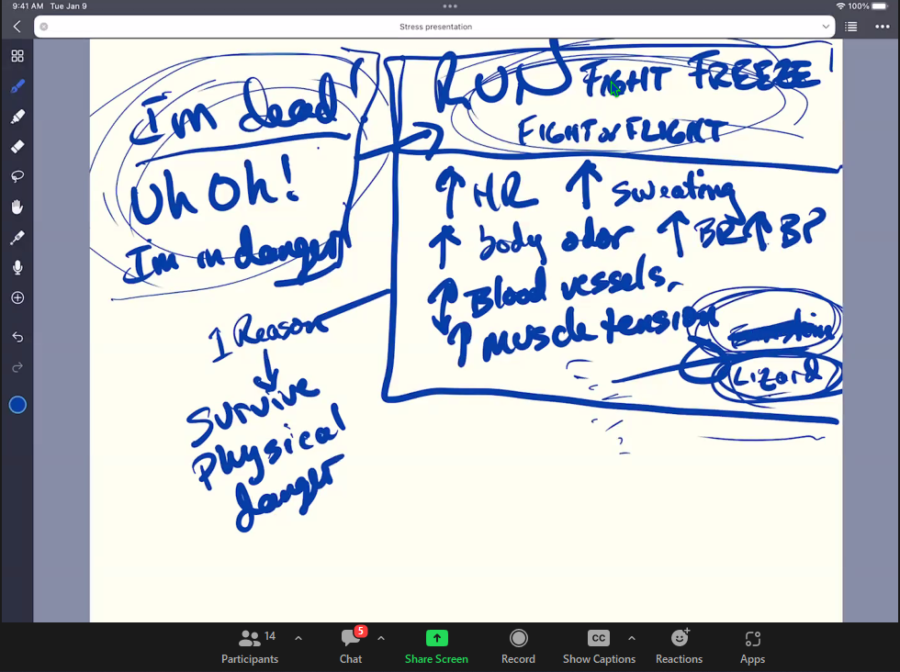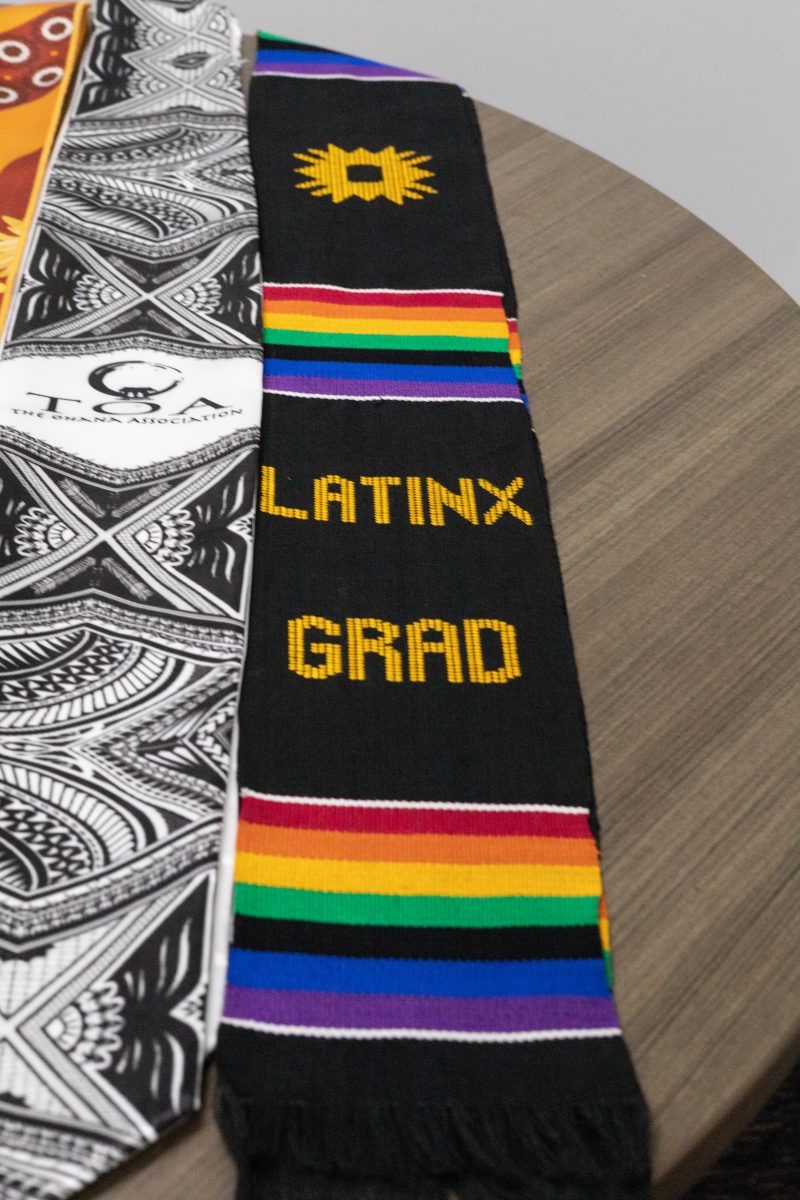
Weber State University Wildcats traveled 2,500 miles to the Guatemalan city of San Pedro La Laguna, where students and faculty recently participated in a microfinance program benefiting Mayan women as part of a study-abroad class.
Alicia Giralt, a foreign language professor at WSU, started the microfinance program five years ago. Giralt said she admires Muhammad Yunus, a Bangladeshi economics professor and winner of the Nobel Peace Prize who developed the concept of microfinancing and microcredit, and he inspired the program. She then talked to a professor at Westminster College in Salt Lake City who had involved his students with a microfinance program in Kenya.
“I thought I could do something similar with my students in Spanish so they could become more proficient in the language,” Giralt said.
Microfinancing involves offering a small loan to individuals in developing countries, which is used to start a small business. In the case of many of the Guatemalan women, this can be making tortillas or snacks, embroidery, beading, jewelry or clothing. Giralt said many of these individuals don’t have collateral, so banks won’t give them any funding or loans.
“’Micro’ means that it’s very small,” Giralt said. “It’s just enough to start a small business, or in some cases to increase a little tiny business that somebody may have already started.”
WSU students loaned $50 to Mayan women for the purposes of starting or expanding their small businesses. In previous years, the WSU students would put up the $50 themselves, but this year, Giralt’s program raised enough funds to cover those costs.

“Little things here can make a huge difference there,” said Gavin Garside, a WSU student who went on the trip.
Garside said $50 seems like a relatively small sum in the U.S., but it can mean getting months ahead for some of the women who received the microfinancing.
WSU students underwent lessons and training on campus before the trip to familiarize themselves with the basic business concepts and vocabulary they’d be teaching the women, words that students aren’t as quick to learn in a foreign language, such as “loan” or “interest rate.”
Giralt said her microfinance program focuses on creating opportunities for women because many studies show that when men make more money in developing countries, it tends to go to electronics and related purchases. But Giralt said that when women make money, it tends to trickle down to the whole family.
“Like (for) better health, better nutrition, better schooling,” Giralt said.
In addition to offering students the chance to help independent businesses, WSU students had the opportunity for cultural learning and growth through exchanges. Garside said he loved his time there, and he’d go back without any hesitation. He was able to see the country, gain proficiency in Spanish through an immersion experience and learn about the local culture and language.
“It works good for my students,” Giralt said, “because they develop this proficiency and they learn about Mayan culture, which is truly fascinating.”
Giralt said she likes the idea of taking students to a developing country, because it widens their view of the world and offers them new perspectives. She said she used to take study-abroad students to Spain, and they would whine about some of the minor inconveniences of Europe, but taking students to a developing country helps them to see more of the world and how privileged they are.
“The first day we meet I tell them, if you want the comforts of home, stay home,” Giralt said.









